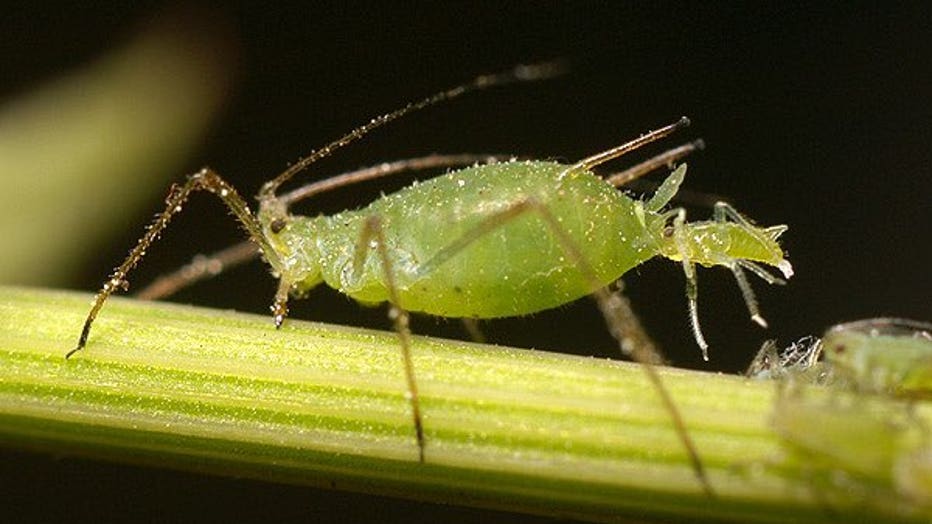Sticky mess: Aphid droppings causes headaches for Austinites

Insect's sticky deposit causes big headaches for Austinites
Lots of Austinites have noticed a sugary-substance on their car or on the ground.
AUSTIN, Texas - It’s gross, and it’s everywhere…in our yards, on our porches, lawn furniture, not to mention all over our cars.
"Yes, has gotten pretty bad. It’s hard to see, especially at night," said South Austin resident Lourdes Zamarron.
It’s called "honeydew", a euphemism for the excrement that comes from tree-dwelling aphids.
"The insects will suck on the leaves, and then the sap passes through them. And then kind of the what's left over gets excreted," said Daniel Priest, Environmental Compliance Specialist Senior with the City of Austin.
Experts say aphids are more prevalent because the hot dry summer killed many of the insects that feed on them.
"And then all of a sudden we had this little bump of rain a few weeks ago and the aphids that were able to hide out and keep reproducing," said Mark Gibbs of The Great Outdoors nursery in Austin.

"I thought it was rain, like humidity in the mornings at first," said South Austin resident Michael Scott.
In Scott’s backyard, aphid droppings cover his lawn furniture, his deck, his grill, not to mention his car and driveway.
"I walk my dog several miles, and we have to zigzag to avoid it on the streets because it sticks on her feet, and she brings it inside, and the floors get dirty. Big mess," said Scott.
At the Barton Springs Car Wash, business is booming.
"Probably about 85-90% of every car coming in right now has this aphid excrement on the vehicle," said Javier Huron, operator at Barton Springs Car Wash.
Here, they use a special chemical to cut through the honeydew, which can damage your car’s paint job.
"It’s just taking a little longer, and you’re having to double wash the vehicles when they come in," Huron.
If you want to root out the problem, experts suggest power washing your trees, if they’re not too big, or buy bags of live ladybugs or other insects that eat aphids.
"We had shipments of ladybugs coming in. We have shipments of lace wings coming in. So those are beneficial predators that will go out and eat up some of that population," said Gibbs.
"But just because it's a problem for us, it's not necessarily a huge problem for the trees. So we try to bear that in mind and look at things from the trees' perspective as well," said Priest.
Many say they’ll just stick it out—and keep getting their car washed.
"Only thing I can do is come visit these guys here, they do a great job," said Zamarron.
Experts say the conditions will likely improve after a few weeks, and aphid populations will no doubt decline as we get closer to winter.

